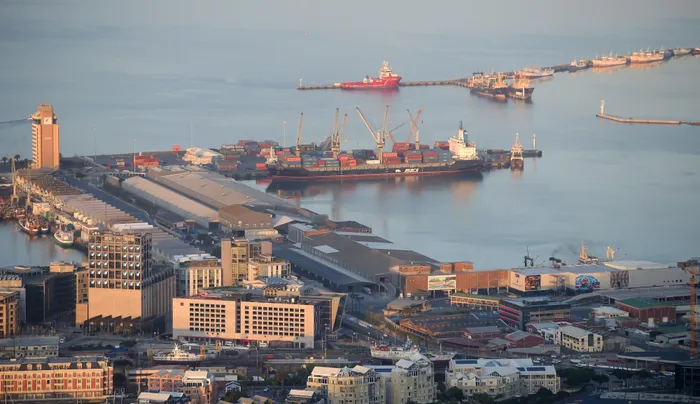
A new report reveals how maritime crime is perpetrated in Southern African Development countries such as South Africa, Angola, and Namibia.
Image: Independent Newspapers Archives
Drug trafficking, oil and fuel smuggling, and illegal, unreported, and unregulated fishing are among the maritime crimes impacting South Africa, Angola, and Namibia.
This is according to a new report, Securing Africa’s South Atlantic, compiled by Enact Africa, which delves into how transnational criminal networks use existing legitimate trade routes rather than preferring certain ports.
According to the report, illegal trade often passes through ports with high trade volumes, such as Durban and Walvis Bay in Namibia.
Coupled with this are often parallel legal and illegal shipments of the same commodity, which obscures illegal trade, and limited technology and profiling abilities to identify illicit shipments.
The report noted that Angolan and Namibian waters suffer from illegal fishing, while Angola is also plagued by vessel attacks and cross-border fuel smuggling due to its rich oil deposits.
South Africa is a significant hub for cocaine transit and faces issues with poaching. Criminal networks leverage these rich maritime resources, with corruption at various levels of government and industry exacerbating these problems.
The report stated that most cocaine entering South Africa is transported in containers from Brazil.
According to the report, vessels, as instruments of crime, are uniquely difficult to counter. They are often transnational – registered in one country, carrying crew and cargo from across the globe, fishing under licences from multiple countries, and passing through different states’ waters.
“Different vessels facilitate Transnational Organised Crime (TOC) – from container vessels to fishing vessels, small dinghies, pleasure craft, and uncrewed vessels. Vessels’ size, design, and technology dictate how far offshore they can travel, and how much and what kinds of goods they carry,” read the report.
The report added that this also dictates whether they can access remote shorelines or large commercial ports.
The choice of vessel is influenced by the commodity being moved, its size, origin, destination, and the criminal networks’ access to vessels. Some vessels engage exclusively in criminal activities, while others participate primarily in legal trade. Some, like fishing vessels, are more susceptible to criminal activity due to the nature of their operation.
While fast vessels are often preferred for a quick getaway, routes and vessels are also chosen based on the corruptibility of crew members.
Enact said that shipping containers also allow bulk shipments to cross the globe at low cost, with large illicit shipments often concealed by legal trade.
The options for exploiting containers, according to the report, are bountiful, and without risk profiling, even finding a container exclusively carrying illegal goods is akin to finding a needle in a haystack.
“Illegal commodities are routinely hidden among legal goods – they may be placed in hidden container compartments, misdeclared, swapped using the ‘rip on/rip off’ method (original seals are broken, cargo replaced and fraudulent seals applied), commingled with lookalike products, or placed into containers when vessels are already at sea.
“Because containers follow shipping schedules, they often pass through multiple jurisdictions and are transhipped. For example, in 2018, a 400kg cocaine shipment was found in Namibia, hidden among packages of photocopy paper. It left Brazil’s Port of Santos, transited through Cape Town, and was seized in Walvis Bay. Drugs have also been attached to vessels. This parasitic method entails a diver securing a shipment to a vessel’s hull, which is then retrieved by the same or another diver upon reaching its destination.”
“A Brazilian diver responsible for these attachments was arrested on his way to South Africa in 2023,” the report stated.
The author of the report, Carina Bruwer, said that all maritime crimes originate from land-based causes and most international trade takes place at sea, regardless of whether the commodities are sourced on land or at sea. She said this includes Africa’s biodiversity and natural resources.